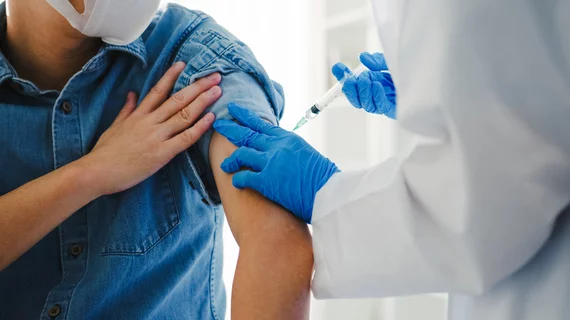FDA announces shift to simplify COVID-19 vaccines
The U.S. Food and Drug Administration (FDA) is now recommending a single dose of the new COVID-19 vaccines from Moderna and Pfizer-BioNTech for most people.
The recommendation updates the FDA’s emergency use authorizations (EUAs) for Moderna and Pfizer-BioNTech COVID-19 vaccines. The current vaccines are bivalent vaccines, targeting the original and omicron BA.4/BA.5 strains. The monovalent Moderna and Pfizer-BioNTech COVID-19 vaccines are no longer authorized for use in the United States, the FDA said.
The update recommends that most people who have not been vaccinated against COVID-19 receive a single dose of the current bivalent vaccine. The agency said it expects to make more decisions about future doses for those who have already received vaccine doses on the fall strain composition at an FDA advisory committee in June.
“At this stage of the pandemic, data support simplifying the use of the authorized mRNA bivalent COVID-19 vaccines and the agency believes that this approach will help encourage future vaccination,” Peter Marks, MD, PhD, director of the FDA’s Center for Biologics Evaluation and Research, said in a statement. “Evidence is now available that most of the U.S. population 5 years of age and older has antibodies to SARS-CoV-2, the virus that causes COVID-19, either from vaccination or infection that can serve as a foundation for the protection provided by the bivalent vaccines. COVID-19 continues to be a very real risk for many people, and we encourage individuals to consider staying current with vaccination, including with a bivalent COVID-19 vaccine.”
For individuals 65 and older who have received at least one dose of the bivalent vaccine, the FDA recommends one additional dose four months after their initial dose. Children 6 months through 5 years of age who are unvaccinated may receive a two-dose series of the Moderna bivalent vaccine (6 months through 5 years of age) OR a three-dose series of the Pfizer-BioNTech bivalent vaccine (6 months through 4 years of age), the FDA said.
Available data reveals most of the U.S. population aged 5 years and older already have some antibodies as a result of the vaccine or a COVID-19 infection against the virus.

